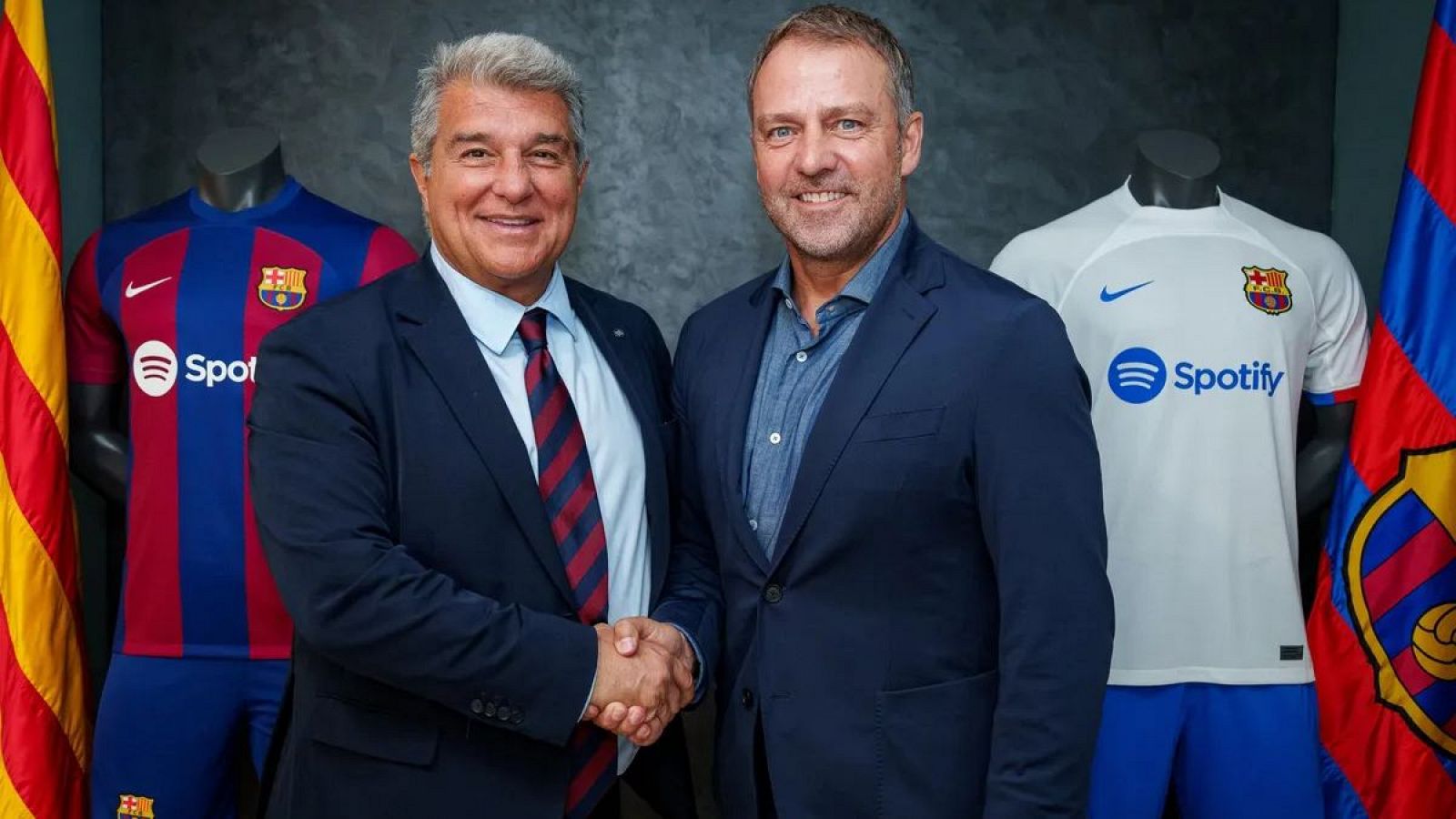Sports
4 quotes sports parents should live by from former MLB player Jeff Francoeur

Yankees and Dodgers World Series to feature stars on and off the field
The baseball field will be filled with stars during the World Series between the Yankees and Dodgers, but so will the stands. Bob Nightengale tells us what to expect.
Sports Seriously
Jeff Francoeur admits he’s not always right – especially as a dad, and especially when it comes to his kids’ sports.
Even as a longtime major league baseball player and a well-known broadcaster during MLB’s playoffs, he relies on conversations with friends for advice. Like one with George Brett, who once coached his son’s travel baseball team.
Even after entrusting their 11- and 12-year-olds to a Hall of Famer, parents couldn’t resist yelling tips to their sons — put your back elbow up! — while they batted.
“These kids couldn’t think straight,” Francoeur recalls. “And George said, ‘I had all the dads come to practice one day and I threw BP to the dads, and they stunk.’ He said to them, ‘Y’all can’t hit so stop yelling at your kids to do it.’
“To me, it’s a perspective change.”
The sharing of such stories, with sports celebrities but also with parents he meets on the fields around Atlanta, is the spirit of Francoeur’s youth sports podcast, Pure Athlete.
Francoeur had a 12-year run as a major league outfielder but, in many ways, is now one of us trying to negotiate his kids’ athletic journeys.
“I tell people: I love sports. It’s given me my life,” he tells USA TODAY Sports, “but I also know that if it’s done the wrong way, it can ruin a lot of friendships.”
Francoeur, 40, shares the studio with two more experienced sports dads, Britt Lee and Brad Williams. Coaching his four kids, he has his own unfiltered takes on many hot topics, from toxic parents to participation trophies.
“This whole idea of all 12 teams in the league get a trophy, what what are we teaching our kids?” he says. “Six, seven, eight years old you want to give a trophy to everybody for playing, I don’t care either way. But as they get older, you got to earn that trophy.”
Back home to watch the World Series with his family after covering the ALCS, Francoeur gave four quotes to live by for sports parents:
(Questions and responses are edited for length and clarity.)
‘Relationships suffer because of sports’ unless you’re having fun
Francoeur’s father, David, was an educator in Cobb County (Ga.) school system and viewed his youngest son not as a big-league prospect but “a goofy 13-year-old kid playing sports.”
Sports for Francoeur and his older brother and sister were kept in perspective and could quickly be taken away.
“Growing up, do you know how many games I missed because of schoolwork or I lied about a test grade?” Francoeur says.
USA TODAY: How did your upbringing shape your sports experience?
Jeff Francoeur: My dad was very old school. If you commit to playing, you’re going to finish out the season. But at the same time, there were a couple of the top travel teams in Georgia and the Southeast that wanted me. And I just always told my dad I want to play with my buddies on a small travel team through the park. We took our lumps, we weren’t as talented, but we always had fun. And as my dad kept saying, as long as you’re passionate and you’re learning about it and you’re having fun, I don’t care what team you’re on. My dad never came to high school baseball practices or football practices. Now, he never missed a game, but there’s these parents now that are at every practice in high school, watching their kids after school at 2:30.
USAT: When did he really think about you as a next level athlete?
JF: He didn’t know till probably 17, until I played on the U.S. junior national team. I can’t tell you how many parents (ask): “My son’s 10, what should he do?” And I’m like, “Let him be a kid.” I have talked to so many college baseball coaches, some of the best in the country, and they’ll tell you the same thing: “I don’t really even look at a kid until he’s 16.” Especially with NIL and the way the coaches change now, you don’t know who’s going to be there in three years. I like to tell people all the time, “Just keep playing because eventually you’ll have an opportunity if you’re good enough.”
USA TODAY: What’s the biggest pet peeve with parents?
JF: The parent that says, ‘My kid played baseball the whole way through.’ I tell parents: There’s exceptions to everything. There’s always going to be your Serena Williams, your Bryce Harper, your Tiger Woods. They just are really good. They’ve never gotten burnout. They love it. But we’re talking to the 95% of parents. We’re talking to the majority of parents that have your average kid that they just want to play in high school and have a great experience.
I think a lot the reason that parent and kids relationships suffer is because of sports, in the sense of the seriousness of it. And I think so many parents have got it mixed up now, where sports is first. Family time just gets lost because of this obsession we all have with sports. There’s that family with three kids, and maybe the oldest is the one that gets all the attention because they’re doing travel, and these other kids don’t get an opportunity.
‘If you don’t want to do it, you don’t have to’
Sports were never forced on Francoeur, who naturally gravitated to football and baseball (where he became a first-round pick). It wasn’t so easy for his own kids – Emma Cate, 11; Brayden, 9; Ellie, 6; and Camden, 4 – given his major league pedigree.
At first, it seemed natural to be baseball or bust.
USAT: What have you learned about yourself since becoming a sports dad?
JF: That my kids have to be passionate about what they’re doing. My son, you would just think he’d love baseball. I used to be like, “Man, why is he not excited?” And sure enough, one day we’re in the car ride on the way home after practice, I said, “Dude, you like playing? If you don’t want to do it, you don’t have to.” Well, now he’s been playing lacrosse for two years. Absolutely loves it. We get home after school, and we’ve got practice, his bag’s packed, he’s ready to go. Let your kid drive their passion. It might not be what you want but it’s been a cool relationship for me and my son, for me to learn the game with him and to grow with him.
USAT: What have you learned from the coaching experience?
JF: One of the main things I’ve tried to teach my kids is to fight against the individualism of sports. Me and my wife do not post stuff on social media about our kids with sports because it gives your kids a false sense of expectation. We know this family around the area that does it a lot, and they posted a picture of their son hitting a home run a couple weeks ago, which is great. I mean, I’m happy for him. And then you find out from someone else he was like 1-for-16 in the series, and that was his only hit.
I tell my kids all the time: Just compete and be a good teammate. That’s why Aaron Judge is one of my favorite players. Stanto’s hitting the home runs. I know judge had that home run (in the ALCS) but besides that, he struggled. But he’s pushing his teammates all the time. That’s one thing I try to really teach my kids: Let them be secure with the type of player they are, (but) put those other people first.
Coach Steve: What is fun? It’s not winning. Just ask Andre Agassi.
‘Your kid’s not good yet, and that’s OK’
Playing for the Yankees 21 years ago in Game 7 of the ALCS, Aaron Boone stepped to the plate in the bottom of the 11th inning of a tied game against Boston. He swung at the first pitch from Tim Wakefield and connected.
Boone had been a late-game replacement amid the blur of a frantic Yankees comeback. He didn’t really have much time to think. But, as a kid, he had plenty time to dream about this moment.
What about our children?
USAT: Is that lost on parents today? Making sure their kids have fun with sports?
JF: One thing we’ve talked about (on the podcast) is free play. Instead of having an organized baseball practice every night, on a Wednesday why don’t you let the neighborhood kids get together to play a pickup basketball game? Play something they can imagine things. We talked to Boonie. He’s like, “I got the biggest hit of my life to send us to the World Series. I dreamed of winning a World Series since I was a kid.” Kids don’t play pickup games in the backyard anymore. You’re sitting as an organized practice, and the coach is like, “Hurry up, let’s go.”
And so I always say the ability for kids to to adapt and have fun, parents, we just mess it up a lot of time. Kids are smart. I got 11-year-olds on a travel softball team. And if I asked them to rank the girls 1 through 11 on just talent, I bet you they would get pretty close. Problem is the parents don’t. “Why can’t my kid do that?” Well, your kids not as good yet, and that’s OK. In fourth, fifth, sixth grade, there’s just the boy or girl that’s stronger, faster, bigger, and then all of a sudden, you go through puberty, you get to 10th grade, and it’s like your son or daughter just totally goes by him.
‘Does it mean we’re not going to get ice cream?’
Francoeur was broadcasting a full season of Atlanta Braves games when he woke up on a 10-day West Coast swing in 2023. He called his wife, Catie.
“I can’t do this anymore,” he told her. “I’m gone too much.”
He scaled back to 25 games this past season, mostly home games, and he’s gone for two weeks during the postseason.
“The two guys I do this (podcast) with, their kids are grown up and there’s plenty they would change about their journey,” he says. “Enjoy that time with your kids, because you’ll never get it back.”
USAT: Has anything surprised you about being a dad and a coach?
JF: You’re like, “Come on, get a hit, make this free throw.” You want it so bad. But then at the same time, we should want them to miss it. We should want them to learn that you’re not going to win every day. Last year there was a tournament where my daughter, we got in the car, and she goes, “Boy Dad, did I suck today.” I’m like, “I’m glad you can see that.” Does it mean I love her any less? Does it mean we’re not going to get ice cream? No. I think kids sometimes think that, “Oh, if I keep doing better, my parents will love me more.” I told her: “I’m more proud that you realize you’ve got some stuff to work on than if you (had) 10 hits.”
USAT: What closing advice would you share?
JF: Just be cognizant and aware. It’s a billions and billions dollar business, youth sports. There’s plenty of parents that feel like, “If I don’t do this, my kid’s going to be left behind. If we’re not at that practice, or if we miss this tournament, my son’s not going to have a chance.”
That’s believing a lie. Because of the money and because of the amount of money that’s being thrown around in youth sports — 100 bucks to do a 45-minute hitting lesson — there’s people out there, they’re going to take advantage of that. That’s what our parents tell me. Their hitting coach said they should be hitting fourth in the lineup. And I’m like, “How much are you paying them?” Of course, they’re gonna say that.
Coach Steve: Is it worth it? 10 questions for athletes to consider if they play on a travel team
Steve Borelli, aka Coach Steve, has been an editor and writer with USA TODAY since 1999. He spent 10 years coaching his two sons’ baseball and basketball teams. He and his wife, Colleen, are now sports parents for two high schoolers. His column is posted weekly. For his past columns, click here.









